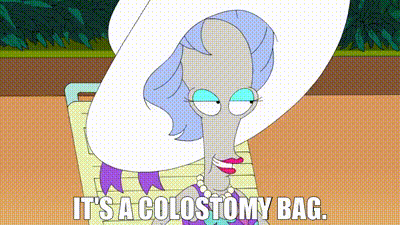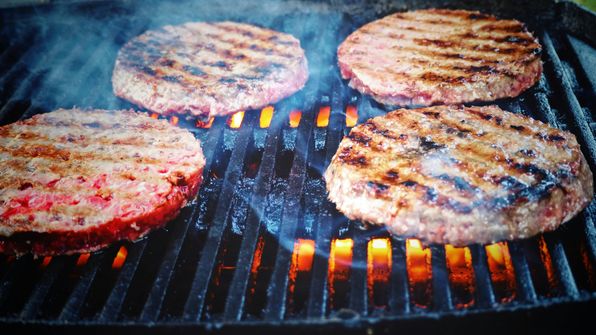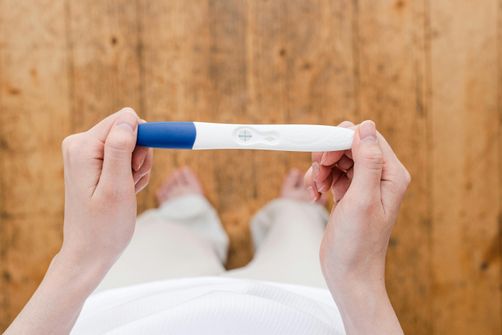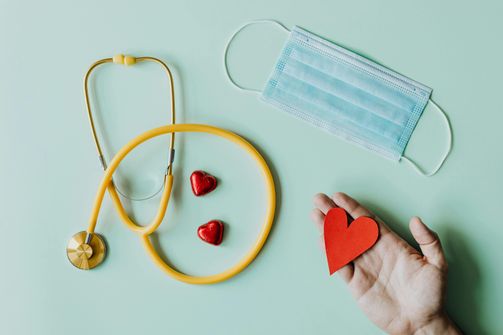
Social Success on the Carnivore Diet: Tips for Staying Committed at Gatherings and Restaurants
Social gatherings often mean a spread of carb-heavy foods and tempting desserts that can make sticking to the carnivore diet feel tricky. But with a b...

If you’ve recently had a colostomy or have been living with one for a while, you might be wondering how to adapt your diet to feel your best. The great news is that with a few adjustments, you can enjoy a wide variety of foods without worry.
Let’s explore some of the best diets for 2024 that are designed to help women with a colostomy manage their symptoms, maintain energy levels, and feel fantastic!

A low-residue diet is designed to reduce the amount of undigested food passing through your bowel, which helps minimize stool output and reduce the risk of blockages. This diet focuses on easy-to-digest foods that are low in fiber.
Why It Works: Right after surgery, your digestive system needs time to heal, and a low-residue diet helps by reducing the workload on your intestines. Foods like white bread, rice, pasta, and cooked fruits and vegetables are ideal because they are gentle on the digestive system. According to diet guidelines, these foods are generally well-tolerated and can help prevent discomfort.
Quick Tip: Avoid high-fiber foods like whole grains, nuts, seeds, and raw fruits and vegetables right after surgery to prevent blockages and reduce gas.
Hydration is crucial for anyone with a colostomy. Proper fluid intake helps prevent dehydration, which is a common concern due to increased fluid loss through the stoma.
Why It Works: Drinking plenty of fluids, at least 8 to 10 cups a day, helps keep your digestion smooth and prevents complications such as kidney stones and constipation. Dehydration can cause discomfort and fatigue, so keeping up with your fluids is key.
Hydration Hack: Water is always the best choice, but you can also enjoy other non-caffeinated and non-alcoholic beverages like herbal teas and diluted fruit juices.
Eating smaller, more frequent meals can help manage symptoms such as gas, bloating, and stool output. This approach keeps your digestive system from being overwhelmed and can make digestion more predictable.
Why It Works: Smaller meals put less strain on your digestive system and can help you manage your colostomy more effectively. Regular eating schedules can help establish a predictable bowel pattern, making life with a colostomy easier.
Meal Plan Idea: Try having five to six small meals throughout the day. Snack on easily digestible foods like yogurt, applesauce, or mashed potatoes.
A low-fiber diet is often recommended in the initial stages post-surgery to help your body adjust. While fiber is important for overall health, too much fiber too soon can cause blockages or irritation in your stoma.
Why It Works: By gradually reintroducing fiber into your diet, you can monitor your body’s response and avoid digestive discomfort. Start with low-fiber options like peeled apples, white bread, and well-cooked vegetables before moving on to more fibrous foods.
Friendly Reminder: Gradually add fiber back into your diet, starting with soluble fiber found in foods like oats and bananas, which are easier to digest.
Navigating life with a colostomy doesn’t mean giving up the foods you love. With a few smart choices and mindful eating habits, you can enjoy a varied and satisfying diet. Remember, it’s all about finding what works best for you and listening to your body. Here’s to a healthy, happy, and delicious 2024!
Always consult with a healthcare provider or a registered dietitian before making significant changes to your diet, especially after surgery. Here’s to eating well and feeling great!
A: After colostomy surgery, it’s important to start with low-fiber, easy-to-digest foods such as white bread, rice, pasta, and cooked fruits and vegetables. Gradually introducing more fiber into your diet can help you determine which foods are well-tolerated without causing discomfort or blockages.
A: To prevent gas and bloating, avoid foods known to cause gas, such as beans, cabbage, carbonated beverages, and certain dairy products. Eating smaller, more frequent meals and chewing food thoroughly can also help reduce gas production.
A: While there isn’t a one-size-fits-all diet for women with a colostomy, some recommended approaches include a low-residue diet initially, followed by gradually reintroducing a balanced diet rich in low-fiber, easily digestible foods. Each person’s tolerance can vary, so it’s important to customize your diet based on how your body reacts to different foods.
A: Yes, women with a colostomy can eat fruits and vegetables, but it’s best to start with low-fiber options like peeled fruits, canned fruits (except pineapple), and well-cooked vegetables. Avoid raw vegetables and fruits with skins or seeds until you know how they affect your digestion.
A: It’s important to stay hydrated, so water is always a good choice. Non-caffeinated, non-carbonated drinks like herbal teas and diluted fruit juices are also safe. Avoid carbonated beverages and alcohol, as they can cause gas and dehydration.
A: Managing diarrhea involves eating low-fiber foods that thicken stool, such as white bread, pasta, bananas, and applesauce. Avoiding dairy if lactose intolerant and staying hydrated with electrolyte-rich fluids can also help manage diarrhea.

Social gatherings often mean a spread of carb-heavy foods and tempting desserts that can make sticking to the carnivore diet feel tricky. But with a b...

The carnivore diet is often seen as straightforward: eat meat, keep it simple. But adapting it seasonally can bring freshness, variety, and local flav...

The carnivore diet has become increasingly popular, but like any extreme dietary approach, it raises important questions—especially for women concerne...

The carnivore diet has gained attention globally, but women’s experiences and cultural approaches to animal-based eating vary widely depending on wher...

Living with Chronic Obstructive Pulmonary Disease (COPD) can make everyday activities feel like a marathon, especially for women who are juggling heal...